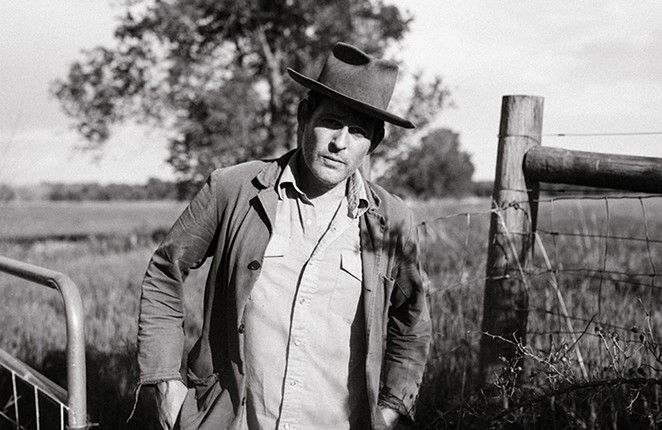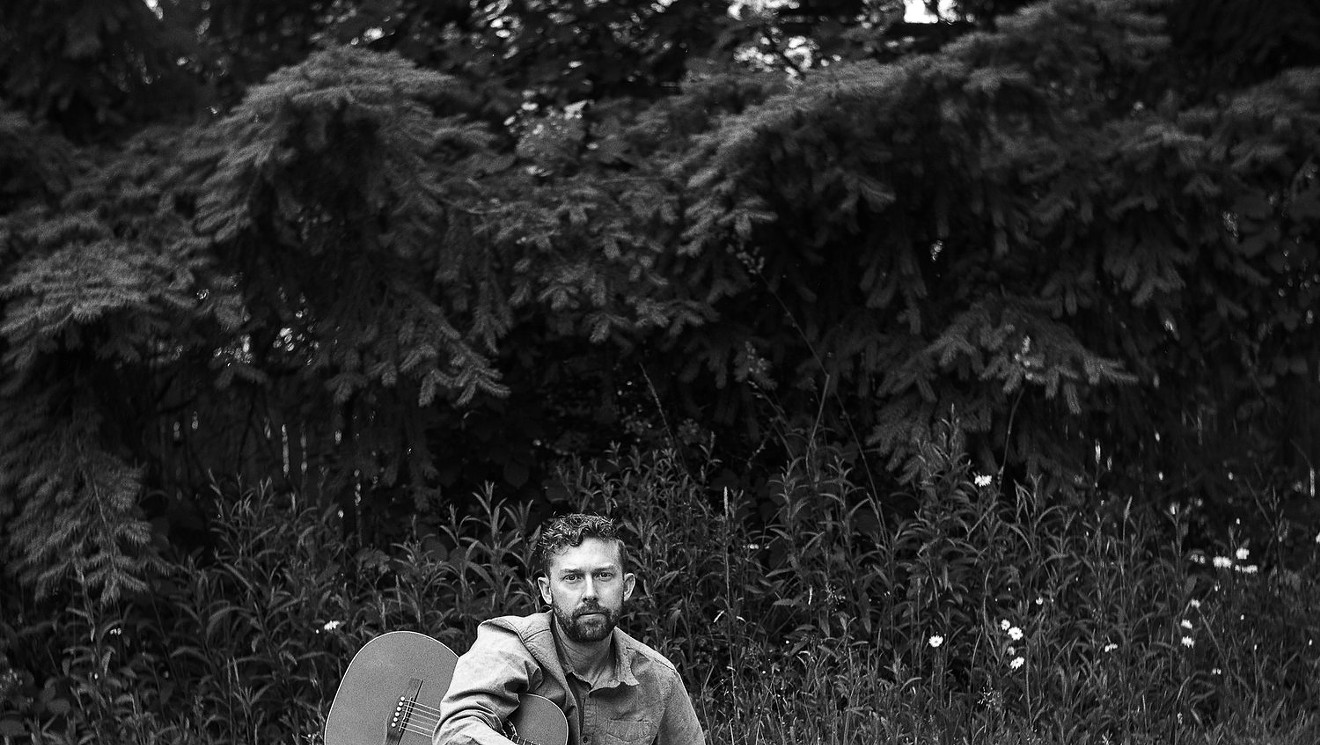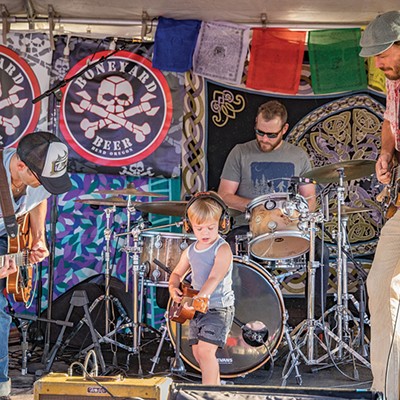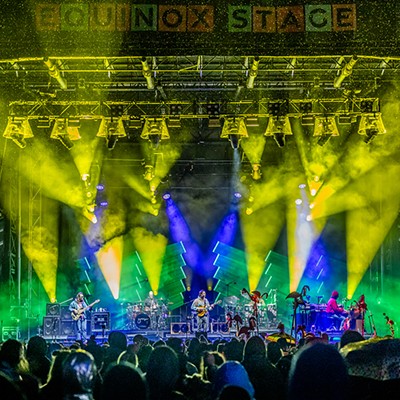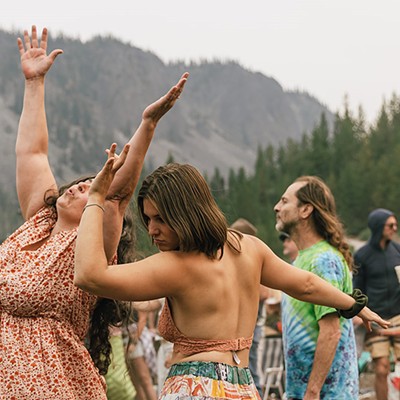The Appaloosa horse is known for its leopard complex spotting, a beautiful pointillistic coat that ranges from Dalmatian to two-tone ombrés. This majestic, impressionistic exterior covers the equine's solid, sturdy structure.
"There are all these tools made out of the bones from that horse because they have really strong bones," Gregory Alan Isakov tells. "I always loved that idea."
Released a year ago, "Appaloosa Bones" was Isakov's first new album in almost five years. "When I set out to make that record, I wanted to make a super simple bedroom record," he says.
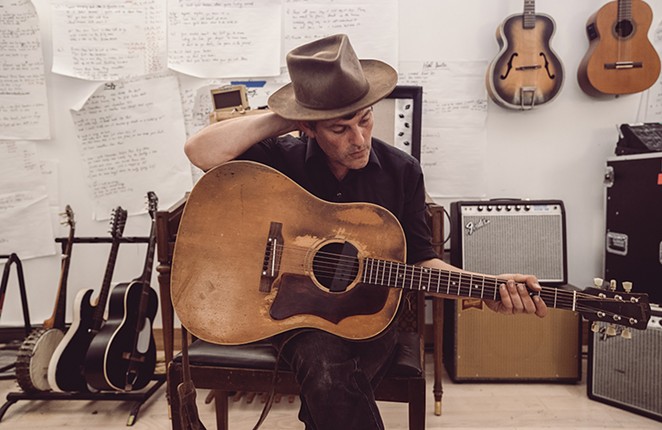
During the past two decades, Isakov has self-released seven studio records and grown his sound of soft but rich, introspective, lyric-driven folk, crafted over time. Always independent, he's forged his own path by creating his own label and management company, Suitcase Town Music, while collaborating with friends like Nathaniel Rateliff and Leif Vollebekk. Since the release of "Appaloosa Bones," Isakov has been featured on songs with Shovels & Rope, Jeremiah Fraites of The Lumineers and Noah Kahan.
Next, he'll join soulful powerhouse Ray LaMontagne and Nashville folk singer Erin Rae at Hayden Homes Amphitheater. Answers have been edited for brevity and clarity.
Source Weekly: How did "Appaloosa Bones" get its title?
Gregory Alan Isakov: The band and I started, years and years and years ago, we had this gig in Denver at a place called the Appaloosa Grill. It was kind of a rent gig, you know, we would play three hours, we'd do it a couple times a month. We didn't have enough material to get through three sets, but the first set was just my songs, and then we'd do some covers. And by the third set, there's enough turnaround now, we can do the first set again! [Laughs] I always thought about that place because it was so formative to me. This record has that kind of curiosity about songs that I had when I was just first starting. I talk about this a lot with my other songwriting friends: I don't think I'm getting better at this. It's just every time you start, it's a blank page and you have to start from scratch. It's not just like an evolutionary thing where you're like, "I've planted a million beds of lettuce, I know how to do this." Every song is completely brand new. So, I was thinking about that a lot.
SW: You played most of the instruments yourself on "Appaloosa Bones" and recorded it in a barn on your farm.
GIA: Yeah, that's where I record everything now. The last three records were made here. A lot of it, honestly, is just because I work so much alone.
SW: Do you have a permanent studio space set up there?
GAI: Yeah, it's like the end of a barn connected to where — we run a farm here, too — where we wash and pack all of our crops for CSAs. There's a wall between that area and our rehearsal and recording space. There's a dedicated space where mics are set up all the time.
SW: That gives you the opportunity to pop in there whenever inspiration strikes.
GAI: Whenever I have time. Or on a rainy day or in the winter a lot. I've never been super into gear and so I don't have to think about it. Everything is just wired up and ready to go.
SW: What instruments did you end up playing on this record?
GAI: Oh, my gosh, drums, keys, guitar, banjo. You know, the only thing I don't think I played on it is strings. My neighbor Rachel Sliker, she lives across the street, she plays viola. And then my string player Jeb [Bows] and John [Paul Grigsby] would come and flesh out the rest of the string parts. John, our bassist, played on a bunch of it, and I played some bass. It was just a very unscheduled and disorganized process, which is how it normally goes with me. I've always hated studios because everything has to be so fleshed out, and you're paying for the space for an hour to a day. That never fit with my workflow. I've always written so much in the studio. I would be so broke if I went to a regular studio. [Laughs.]
SW: I heard you recorded 35 songs with your engineer, Andrew Berlin, during these sessions. And you said this "is a pretty normal amount for me" before whittling it down. What happens with all these unreleased songs?
GAI: Sometimes my manager asks me, "Are you gonna release all that stuff?" And I'm like, "Well, there's a reason they didn't make it on the record." At the last day when I was like, "What feels good to play next?" when I'm playlisting the record, and for some reason, they never came up. There's a reason that they didn't, and so I don't throw them out, but I just let them sit for a little bit longer. Sometimes some of them needed one more life experience to be done. Some of them are still in that process. And actually, two from "Appaloosa Bones" were songs that didn't make it on "Evening Machines" or "The Weatherman" for some reason or another, and then they got a new perspective or reworked a little bit. I was like, "OK, I'm glad I didn't rush this one because now I feel like it's done."
SW: Tell me about your other job: farming at Starling Farm.
GAI: I'm outside of Boulder. I did a lot of horticulture school throughout college. I started my own farm about 10 years ago, and I started out doing tea production for a company in New Mexico and I was growing a lot of mixed greens for chefs. Now, we do over 100 CSA members and four restaurants. It's a crew of four that live here, including myself, and it's a profit-share farm that we run.
[Farming] is something that I don't think I'll ever master. I've been doing it for so long, and it's so challenging and so fulfilling. I feel like, in my core, it's very important work, to work with growing really healthy, sustainably grown food for a local area. I feel like that's the answer to a lot of problems: small, localized farms throughout the country, throughout the world.

